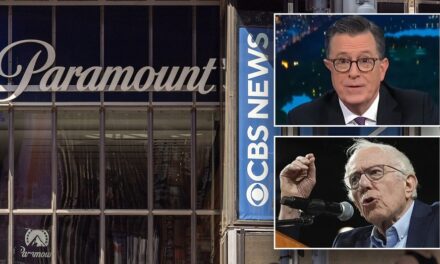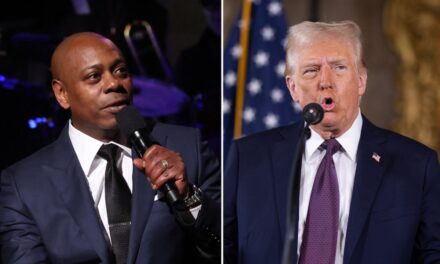In a move that has sparked discussions and raised eyebrows, Disney announced the opening of a new theme park in Abu Dhabi, United Arab Emirates. This significant venture contradicts the company’s previous opposition to Florida’s so-called “Don’t Say Gay” bill, raising questions about the consistency of its corporate stance on LGBTQ+ rights across different regions.
The “Don’t Say Gay” bill, formally known as the Parental Rights in Education bill, was enacted in Florida, igniting a nationwide debate over LGBTQ+ issues in schools. Critics assert that the legislation restricts teachers from discussing sexual orientation or gender identity in class, leading many, including prominent figures and organizations, to decry it as discriminatory against LGBTQ+ individuals. Disney, initially silent on the matter, faced backlash for its perceived inaction, prompting the entertainment giant to finally vocalize opposition to the bill.
Disney’s response included a public statement from its CEO, condemning the legislation and pledging support for the LGBTQ+ community. However, the announcement of a new theme park in a region with a markedly different approach to LGBTQ+ rights and social issues raised concerns about the company’s commitment to its stated values when facing local cultural and legal realities.
Abu Dhabi, while more liberal compared to some other locations in the Middle East, still operates under laws that are considered strict by Western standards regarding LGBTQ+ rights. Homosexuality is not legal and LGBTQ+ individuals often face severe discrimination. Thus, the agreement to build a theme park in this regional context may seem contradictory to Disney’s efforts to position itself as an ally of the LGBTQ+ community back in the United States.
As multinational corporations navigate the complexities of global business, they often encounter challenges related to corporate social responsibility (CSR) and adherence to ethical standards. Disney, in particular, has built a reputation on inclusivity and diversity. Its parks, films, and branding have begun to reflect more equitable cultural narratives that embrace diversity. Nevertheless, at the same time, these businesses are also seeking to tap into lucrative markets, which can lead to tough decisions about where they operate and how they align with local laws and customs.
The juxtaposition of Disney’s actions raises pertinent questions about prioritizing profit versus principle. Corporations often find themselves at the intersection of local culture and broader social movements. Disney’s expansion into Abu Dhabi showcases this dichotomy vividly. Will the company continue to advocate for progressive policies when its economic interests might be threatened, or is it willing to adapt to the cultural climate of specific regions to ensure continued growth?
Critics argue that businesses like Disney should uphold ethical standards regardless of where they operate, asserting that engaging in markets with restrictive social policies sends a mixed message to consumers and could undermine advocacy efforts back home. Others point out that while business interest can justify expansion into markets like Abu Dhabi, corporations must transparently acknowledge the implications of their presence in regions that still practice laws restricting fundamental rights.
Amidst this backdrop, LGBTQ+ advocacy groups have been vocal in expressing disapproval of Disney’s move, feeling that the actions contradict the supportive narrative promoted within its narratives targeted at younger audiences in the U.S. This discordance has come as a blow to many who viewed Disney as an ally and leader in the fight for equality.
Additionally, the intersection of local regulations and corporate policies continues to prove problematic in diverse regions. For instance, while the commitment to diversity and inclusion is celebrated at Disney’s U.S.-based parks, the same cannot be said for content in regions like the Middle East, where prevailing views on LGBTQ+ issues starkly diverge from the values held by many in the West.
Disney’s strategic maneuvers highlight how corporations must walk a fine line amidst international differences. As social consciousness evolves, businesses are urged to consider how their decisions reflect or contradict stated principles. The growing mobilization of consumer power through social media has heightened scrutiny on these corporations, compelling them to reassess their practices more than ever.
Furthermore, Disney’s development in Abu Dhabi comes during a time when the company is facing internal struggles over how to navigate workplace culture amid a backdrop of growing political pressure regarding LGBTQ+ rights. In contrast, the Islamic nation emphasizes traditional family structures, providing a stark contrast to the acceptance of diverse identities promoted in the company’s U.S. narratives.
While many fans may enjoy the new experiences provided by the Abu Dhabi theme park, there remains a palpable tension beneath the surface regarding the broader implications of Disney’s message. The children who engage with the magic of Disney should also feel the organization’s commitment to empathy and respect for all individuals, regardless of their identity.
On the other hand, it will be interesting to watch how the company plans to integrate local cultural nuances into its branding without compromising its values. The question remains: can Disney maintain its core advocacy for inclusivity while operating in a region that enforces laws contrary to those principles?
As this situation continues to unfold, it may well serve as a litmus test for other corporations contemplating similarly expansive ventures in cultures with conflicting values. Disney’s decisions could set precedence for how businesses approach their global strategies, especially concerning CSR and advocacy for underrepresented communities.
In conclusion, Disney’s forthcoming theme park in Abu Dhabi undoubtedly opens up a world of possibilities for entertainment in the Middle East, but it also raises challenging questions about the company’s identity and values in the face of economic ambition. The balance between promoting progressive ideals and responding to market demands resonates on a broader scale as companies face increasing scrutiny over their social responsibilities globally.
As audiences around the world celebrate the magic and joy Disney creates, it remains critically important to align corporate actions with the ideals that champion equality, respect, and dignity for all people, regardless of their sexual orientation or gender identity. The spotlight is now on Disney as it navigates these waters, seeking to forge a path that honors its commitments to the LGBTQ+ community while engaging with diverse markets and cultures.
































